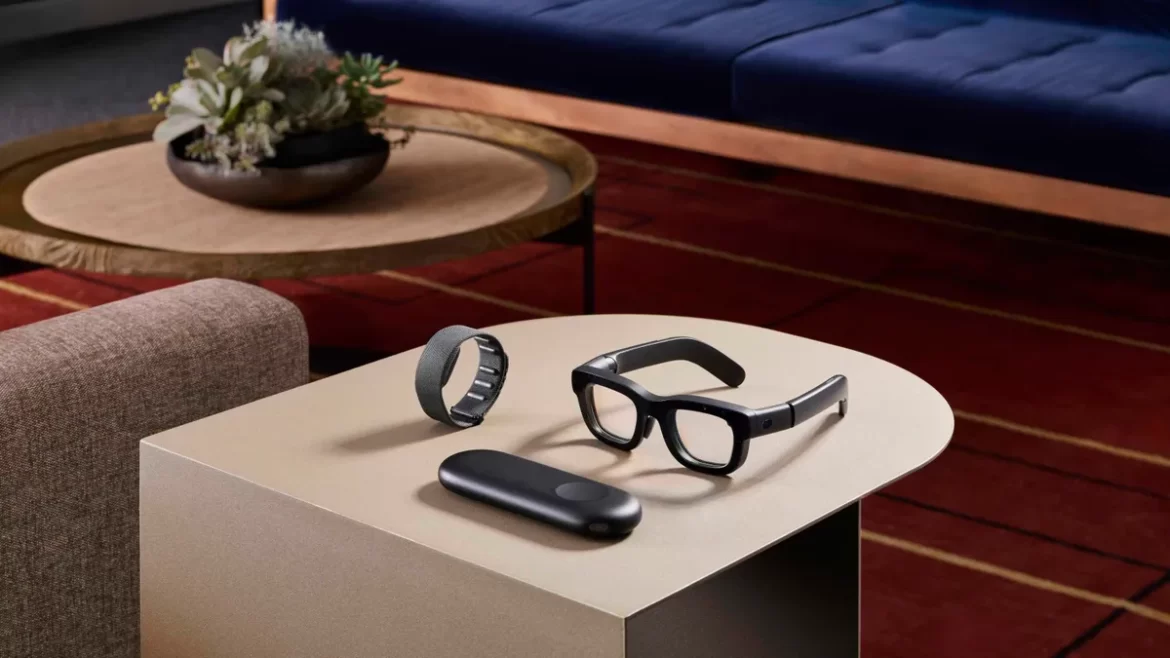Alongside the Quest 3S and AI updates, we got a glimpse of Meta’s future at Meta Connect. After teasing the device several times in recent months, the company finally gave the world a proper look at its “full holographic” augmented reality glasses, which it’s currently calling Orion. Meta is packing a lot of tech into those chunky frames, which aren’t coming to market just yet.
The company first revealed five years ago that it was developing holographic smart glasses, but it has actually been working on the project for a decade. It claims that this is “the most advanced pair of AR glasses ever made” and results from “breakthrough inventions in virtually every field of modern computing.” For one thing, it uses itty bitty projectors to display holograms onto the glasses.
These glasses appear far less cumbersome to wear than previous mainstream AR products such as Magic Leap, Microsoft’s Hololens and even Google Glass. They also don’t block you out from the rest of the world like a virtual reality headset (though Meta’s headsets do allow you to see what’s around you via the onboard cameras). As a result, you can see wearers’ full faces, eyes and expressions without having to resort to a weird, eerie workaround like Apple is doing with EyeSight on the Vision Pro.
Meta said Orion is lightweight and works both indoors and outdoors. The company claims that the glasses allow for “digital experiences that are unconstrained by the limits of a smartphone screen” as they overlay holographic elements on top of the real world. In addition, Meta said Orion integrates contextual AI to help you gain a better understanding of the world around you.
The company added that you’ll be able to look inside a fridge with the glasses on and get Meta AI to come up with a recipe based on what you have. You should be able hop onto video calls via Orion and view and send messages on Messenger and WhatsApp. Based on images that Meta shared, there will also be holographic versions of various other apps, such as Spotify, YouTube and Pinterest.
There’s one key reason why Meta has been able to keep Orion lightweight: not all of the required tech is actually in the frame of the glasses. Orion comes with a required wireless puck that handles much of the processing and beams apps and content to the device. There’s also a bracelet that you’ll need to wear for gesture control.
You’re likely going to have to wait a few years to get your hands on this device (or at least a version of it). For the time being, Meta employees and “select external audiences” are able to use Orion. That’s in order to help the company learn more and iterate on the product as it works toward a consumer version of the AR glasses.
Still, Meta claims that Orion is not just a research prototype but is instead “one of the most polished product prototypes we’ve ever developed, and is truly representative of something that could ship to consumers.” By continuing to work on the product internally, “we can keep building quickly and continue to push the boundaries of the technology, helping us arrive at an even better consumer product faster,” the company said. Part of that iteration includes bringing down the price of the glasses to make them more affordable, according to Meta CEO Mark Zuckerberg.
A roadmap that leaked last year indicated that Meta planned to release its first consumer AR glasses in 2027, though the company says it’s aiming to do so “in the near future.” As it happens, Snap also recently debuted its fifth-gen AR Spectacles, but for now those are only available to developers who are willing to pay a monthly $99 fee.
- Ledger Unveils New Flex Hardware Wallet at Bitcoin Nashville
- DePIN Platform Peaq Raises $15M Ahead of Launch
- Worldcoin Foundation Makes ORB Software Open-Source
- Aptos Foundation and Blockchain Phone Maker Jambo Partner to Bolster Global Web3 Access
- Ledger Teases Partnership with Pudgy Penguins
- Worldcoin Rebrands as World, Launches New Eyeball Scanning Orb






